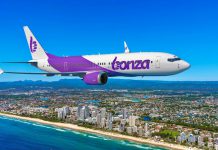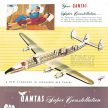A blow has been struck against the world’s biggest travel tax, with Scotland resolving to half the controversial Air Passenger Duty, which slugs visitors to the UK up to £73 per head ($US91.25) – and double that in premium economy, business class or first class.
The governing Scottish National Party has announced it will cut the APD in Scotland by 50 per cent from April 1, 2017, and aim to abolish it completely “when resources allow”.
The move is also supported by the opposition Scottish Conservative Party and has been welcomed by the airline industry, which has long claimed that the APD is a tourism and jobs killer.
However, one of the consequences of the Scottish move is that it will encourage a “chicken run” across the border when airlines landing in Scotland have to charge travellers only half the tax they pay England.
“This is a major step towards the complete abolition of this stealth tax that hinders economic growth, tourism and jobs,” said Willie Walsh, chief executive of IAG, the holding company that owns British Airways. “However, the piecemeal reduction of APD will only serve to undermine airports in the north of England as passengers will rush across the border to get cheaper flights.
“This will create a domino effect across the whole country which is not sustainable. The Treasury must acknowledge that partially scrapping APD will not work and that the solution is simple.”
Walsh said that UK GDP would gain 1.7 per cent and create 61,000 new jobs over the longer term if the APD was abolished – a finding also supported by Edinburgh Airport.
An Edinburgh Airport report estimated that the 50 per cent cut in APD would create nearly 4000 jobs and add £1 billion ($US1.25 billion) to the Scottish economy by 2020.
When it was introduced in 2007, the APD was characterised by the then British Labour government as an environmental tax designed to reduce aircraft emissions.
However, it has since grown into the world’s biggest travel tax. The lowest amount paid, by an economy-class passenger on a flight of less than 2000 miles (3220 kilometres), is £13 ($US16.25) and can rise to as much as £146 ($US182.50) for a passenger in a premium-class cabin travelling more than 2000 miles.
Even in economy class, the impost for long-haul travellers is $US365 for a family of four.
“This is an important moment in the ongoing debate around APD, as it is clear that there is now cross-party support for reductions in the tax to take place in Scotland from April 2018,” said Tim Alderslade, chief executive of Airlines UK, the trade association representing UK airlines.
Edinburgh Airport’s chief executive, Gordon Dewar, said cutting the travel tax by 50 per cent was vital for Scotland’s international ambitions by increasing direct flights and would make holidays abroad more affordable for Scottish families.
“The case against freeing up Scotland from this regressive tax is flimsy,” he said. “It is one-dimensional and completely ignores the economic benefits of more spending and more jobs."
Meanwhile, airlines have hit back at claims by a company specialising in compensation payouts that they are using “dirty tactics” to avoid reimbursing customers for delays and cancellations.
EUclaim – one of a raft of companies established in recent years to chase claims under EU261, the European Union rule that awards passengers compensation of up €600 ($US630) for delays — said it had employed university graduates to go through the claims process on airline websites and that, in some cases, it had taken them up to 15 minutes to even find the correct form.
It said British Airways, Jet2, Virgin Atlantic and Ryanair, as well as holiday charter airlines Thomson and Monarch, had tried to shirk their responsibilities.
EUclaim manager Tjitze Noorderhaven accused BA of trying to confuse passengers with “legal gibberish” and criticised Thomson's claim response time of up to 56 days.
However, many of the company’s claims were disputed by independent British travel journalists and were criticised by the airlines.
"Along with other airlines, we would strongly question the validity of this report,” a spokesman for Virgin Atlantic said. "We do everything we can to respond as quickly, clearly stating how and where our customers can apply."
Ryanair, which was accused in the report of changing its terms and conditions to illegally limit passengers’ rights, said the claims were untrue.
"Ryanair's terms and conditions are perfectly legal,” a spokesman said. “We wish to ensure that all Ryanair customers will receive 100% of their EU261 compensation without deduction of claims chaser fees, which can amount to 50 per cent of the compensation payable to the passenger.
"Since Ryanair customers can claim this compensation directly from us with no fees, these 'claims chasers' provide no useful service whatsoever. Claims chasers don't like our terms and conditions, because they are designed solely to protect our customers and ensure they receive 100 per cent of the compensation they are due."
























